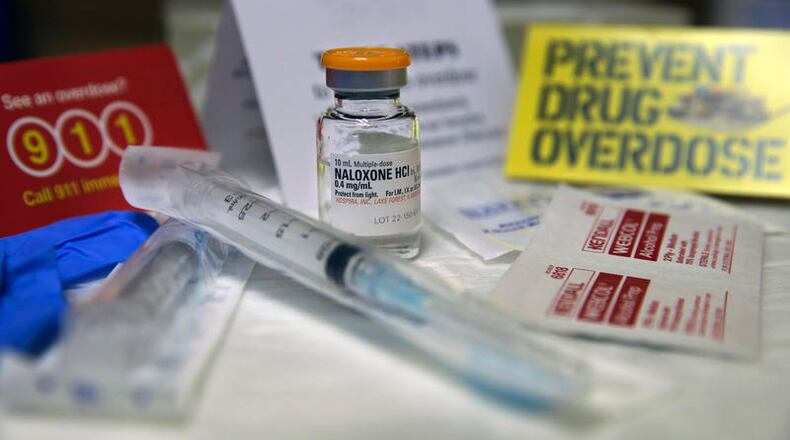Drug overdoses are now the leading cause of death among Americans aged 50 and younger, claiming more than 60,000 lives each year. That’s more Americans than died in the entire Vietnam War, and despite increased attention the trend lines still point in the wrong direction.
To some, the appropriate response to that crisis is to launch a renewed war on drugs, to treat the opioid epidemic as a law-enforcement failure that can be fixed through a law-enforcement solution. That’s certainly the main approach advocated by President Trump in a speech in New Hampshire this week.
“If we don’t get tough on drug dealers, we are wasting our time, and that toughness includes the death penalty,” Trump said. “We have got to get tough. This isn’t about nice anymore.”
In that speech, Trump recounted conversations with other world leaders that have supposedly solved their nations’ drug problems by executing drug traffickers. He didn’t name names, but in past remarks Trump has specifically lauded the examples of China and the Philippines, where President Rodrigo Duterte is carrying out a policy of street executions of suspected drug dealers. So far, according to international human rights groups, more than 12,000 people, most of them urban poor, have been killed by Filipino police, vigilantes and hit men who are paid a bounty by the government for each kill.
That barbarity doesn’t dissuade Trump in the least. In fact, it seems to thrill him.
“I just wanted to congratulate you because I am hearing of the unbelievable job on the drug problem,” Trump told Duterte in a phone call last year, during which he offered an invitation to visit the White House. “Many countries have the problem — we have a problem — but what a great job you are doing and I just wanted to call and tell you that.”
Fortunately, we don’t do things like that here in the United States of America. Not yet, anyway. Here in the United States, the Supreme Court has allowed the death penalty only in homicide cases, and only after extensive due process mandated by the Constitution. In fact, carrying out one death-penalty case costs well over $1 million on average; you could hire a lot of drug counselors with $1 million.
Practically speaking, execution also doesn’t work. It doesn’t work in the Philippines, it doesn’t work in China and it wouldn’t work here. In fact, China has become a primary source of illicit drugs such as fentanyl flowing into the United States, and its factories supply much of the precursor chemicals used for Mexico’s methamphetamine production.
In that New Hampshire speech, Trump made a number of other vague promises that may or may not ever turn into actual policy. However, he did get specific about the idea of “spending a lot of money on great commercials showing how bad (drug abuse) is, so that kids seeing those commercials during the right shows on television or wherever — the Internet — when they see these commercials they — ‘I don’t want any part of it.’ …. And we’ll make them very, very bad commercials.”
Again, that’s Trump talking out of pure instinct, with no attention paid to the experience or input of those at ground zero in this epidemic. Those people tell us that while law enforcement does have a critical role, we’re not going to punish our way out of this problem. The key is to approach the epidemic as an epidemic, through public-health approaches such as readily available drug-treatment programs, research and restrictions on prescription opioid use. The president may believe that "this isn't about nice anymore," but actually, it is.
About the Author
Featured

